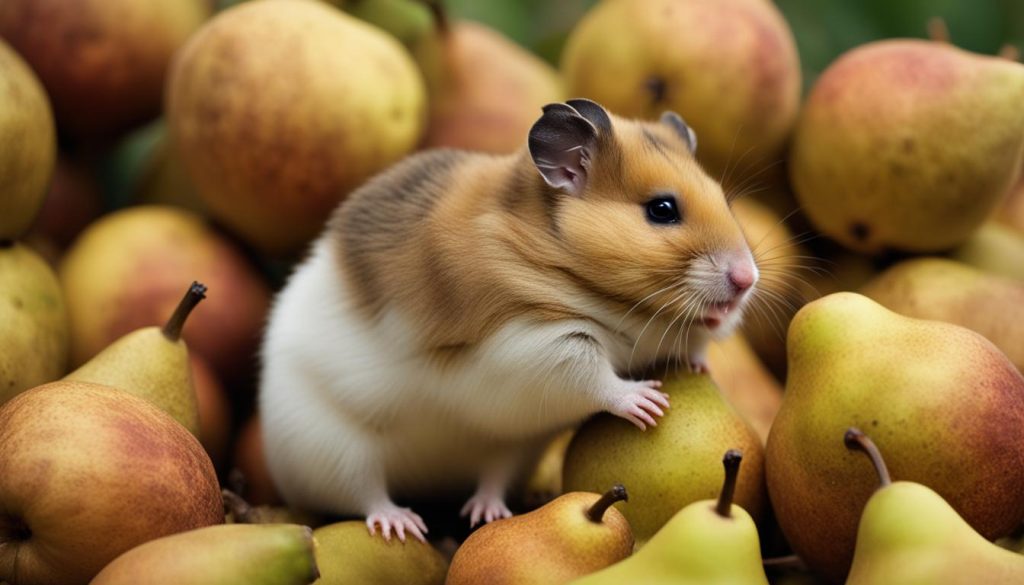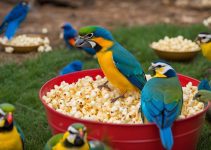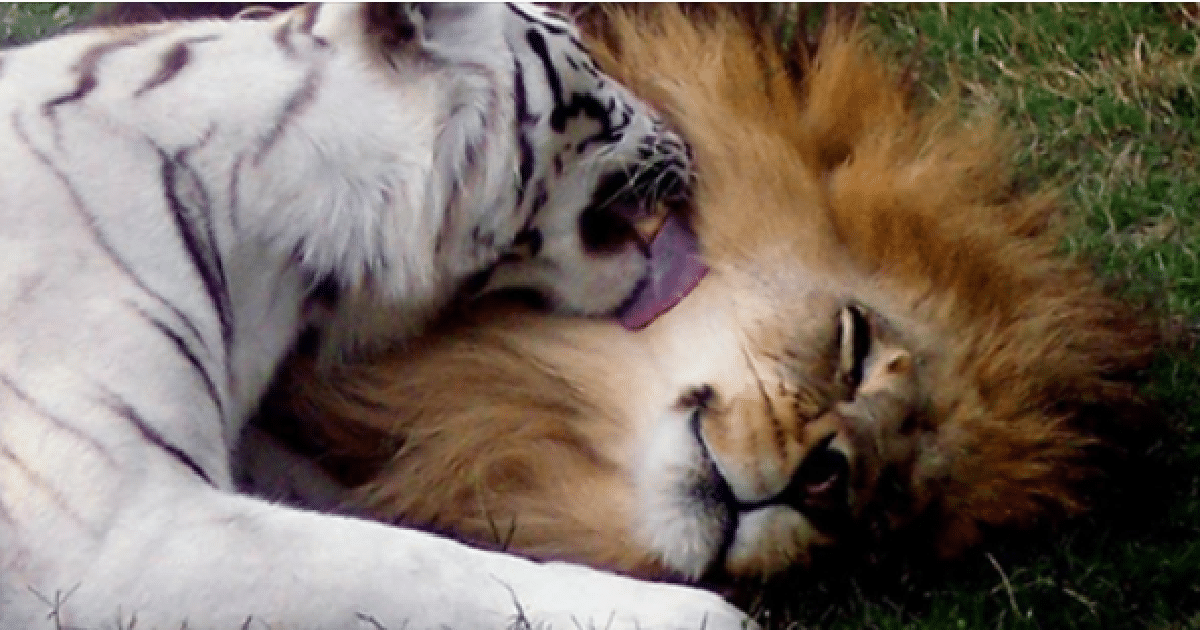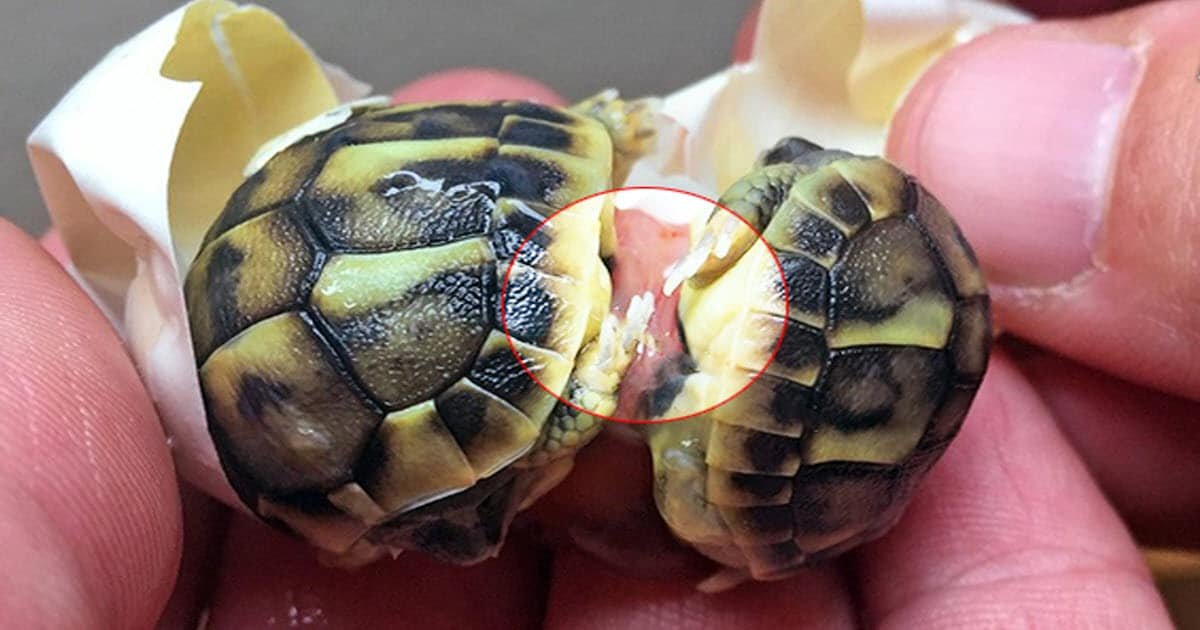Are you a proud hamster parent wondering if it’s safe to feed your furry friend some delicious pears? Well, you’re in luck! In this article, I will provide you with all the information you need to know about feeding pears to hamsters.
Hamsters can enjoy small quantities of pears as part of their diet. Pears are non-toxic to hamsters, making them a safe fruit option. However, it’s important to keep in mind that pears are high in sugar. Feeding too much can have negative effects on your hamster’s health. But fret not, there’s still a way for your hamster to enjoy the sweetness of pears while maintaining a healthy balance.
When feeding pears to your hamster, it’s best to choose firm and less ripe pears. This helps minimize the sugar content, ensuring your hamster receives the benefits of this delicious fruit without any potential harm. Remember, moderation is key when introducing pears or any new food to your hamster’s diet.
Can Hamsters Eat Pears? The answer is yes, they can.
- Pears are non-toxic to hamsters and can be included in their diet in small quantities.
- Pears are rich in vitamins and minerals, such as vitamin C, potassium, and calcium, which can benefit a hamster’s health.
- Choosing firm and less ripe pears helps minimize the sugar content, making them a safer option for hamsters.
- Start with small portions and monitor your hamster’s reaction to pears. Consulting with a veterinarian is always a good idea.
- Remember to offer a balanced diet to your hamster, incorporating a variety of foods to ensure overall health and well-being.
The Nutritional Value of Pears for Hamsters
Pears are a delicious and nutritious fruit that can offer several health benefits for your hamster. They are packed with essential vitamins and minerals that contribute to your hamster’s overall well-being. Let’s explore the nutritional value of pears and how they can positively impact your furry friend.
Vitamin C for Immune Support
Pears are a rich source of vitamin C, a powerful antioxidant that plays a vital role in supporting your hamster’s immune system. Vitamin C helps protect the body against harmful free radicals and strengthens the body’s defenses, allowing your hamster to stay healthy and ward off illnesses.
Potassium for Heart Health
Another essential nutrient found in pears is potassium. This mineral is crucial for maintaining proper heart function and regulating blood pressure in your hamster. Including pears in your hamster’s diet can help support a healthy cardiovascular system and ensure optimal heart health.
Dietary Fiber for Digestive Health
Pears are also a great source of dietary fiber, which promotes good digestive health for your hamster. Fiber helps regulate bowel movements, preventing constipation and promoting a healthy digestive system. Including pears in your hamster’s diet can help prevent digestive issues and keep their gastrointestinal tract functioning smoothly.
While pears offer numerous health benefits, it’s crucial to remember that they should be fed in moderation due to their high sugar content. Too much sugar can lead to weight gain and other health problems in hamsters. As with any food, it’s important to maintain a balanced diet for your hamster and consult with a veterinarian for specific dietary recommendations.
Choosing the Right Pear for Your Hamster
When it comes to selecting the perfect pear for your hamster, there are a few key factors to consider. The ripeness of the pear is crucial, as the sugar content increases as it ripens. To keep your hamster healthy, opt for a firm and less ripe pear, which helps to maintain a lower sugar content. Remember, it’s the ripeness that matters, not the type of pear.

Moderate Serving Size for Hamsters
When introducing pears to a hamster’s diet, it’s crucial to start with small, bite-sized portions. Feeding too much pear or any new food can upset a hamster’s gastrointestinal tract. It’s recommended to monitor the hamster after introducing pears to ensure there are no negative effects. It’s also advisable to consult with a veterinarian to ensure a balanced diet is maintained for the hamster.
The Importance of Moderation
While hamsters can enjoy pears, it’s crucial to practice moderation. Overfeeding hamsters with high-sugar foods like pears can lead to various health issues. The sugar content in pears can cause gastrointestinal problems and weight gain in hamsters, which can lead to obesity and other related complications. To prevent any negative effects, it’s best to offer small tidbits of pear and ensure that the hamster’s overall diet is balanced and varied.
In the wild, hamsters do not encounter fruits like pears frequently, so their digestive systems are not well adapted to handle large quantities of sugar. Therefore, it’s important to be cautious and mindful of the sugar content in pears when feeding them to hamsters in captivity. Moderation is key to maintaining their health and well-being.

Note: Moderation is key when it comes to feeding pears to hamsters. Monitor your hamster’s reaction and consult with a veterinarian if you have any concerns about their diet.
Feeding Tips and Precautions
When offering pears to a hamster, it’s important to keep in mind some feeding tips and precautions to ensure their well-being. As we know, hamsters are natural hoarders, so it’s crucial to check their bedding regularly to make sure no leftover pear remnants are rotting in their enclosure. This prevents any potential health issues and maintains a clean living environment for your furry friend.
Furthermore, when feeding pears to your hamster, it’s essential to serve them fresh and thoroughly washed. This removes any dirt or pesticide residue that may be present on the fruit’s skin. Washing the pears ensures the safety of your hamster’s consumption and minimizes the risk of ingesting harmful substances.
While pears are generally safe for hamsters, it’s crucial to avoid feeding them citrus fruits, such as oranges, lemons, or grapefruits. Citrus fruits are acidic and can cause digestive problems for hamsters. It’s best to stick to safe fruits like pears and avoid any potential complications.
Lastly, remember that a balanced diet is key for your hamster’s overall well-being. In addition to offering pears as a treat, make sure they have constant access to fresh water and a variety of other foods. This ensures they receive a well-rounded and nutritious diet.
Variety in a Hamster’s Diet
When it comes to a hamster’s diet, it’s essential to ensure they have a balanced and diverse menu that simulates their natural feeding habits in the wild. In addition to pears, there are several other food options that you can incorporate into your hamster’s meals to keep them healthy and happy.
Start with a foundation of commercial hamster pellets, as they are specifically formulated to meet their nutritional needs. These pellets provide a balanced combination of proteins, carbohydrates, vitamins, and minerals that promote overall well-being.
While hamsters are primarily herbivores, they can also enjoy small amounts of fresh fruits, vegetables, and herbs. Adding a variety of these foods to their diet not only prevents boredom but also ensures they receive essential nutrients. Examples of suitable fruits include apples, bananas, and strawberries, which can be offered in small, bite-sized portions. (Adding fruits to a hamster’s diet)
When it comes to vegetables, opt for options like carrots, cucumbers, and bell peppers. Ensure that all fresh produce is thoroughly washed and cut into hamster-friendly sizes. However, it’s important to note that some vegetables, such as onions or garlic, can be harmful to hamsters and should be avoided. (hamster’s balanced diet)
Adding herbs to their diet can also be beneficial. Fresh herbs like parsley, basil, and cilantro not only provide flavor but also offer additional nutrients. Just remember to introduce new foods gradually and monitor your hamster’s response. (hamster’s balanced diet)
Occasional treats can be given to your hamster as well. Nuts, such as almonds or walnuts, are a great source of healthy fats and can be offered sparingly. Mealworms are another tasty treat that hamsters enjoy, but they should be given in moderation due to their high protein content. Remember, it’s important to strike a balance with treats and not overindulge your furry friend. (hamster’s balanced diet)
By providing a variety of foods, you can keep your hamster engaged and ensure they receive a well-rounded diet. Just like humans, hamsters benefit from a diverse range of nutrients to support their overall health and well-being. So, get creative with their meals and offer them a menu that keeps them satisfied and nourished. (hamster’s balanced diet, adding fruits to a hamster’s diet)
Conclusion
Hamsters can safely enjoy pears as part of their diet, but moderation is key. Pears provide valuable vitamins and minerals that can support a hamster’s overall health. However, it’s important to select firm and less ripe pears to minimize the sugar content, which can be harmful if consumed in excess. Feeding small portions of pears and observing the hamster’s response is crucial in ensuring their well-being.
As with any dietary change, it’s always advisable to consult with a veterinarian. They can provide personalized guidance and ensure that your hamster’s diet remains balanced and appropriate for their specific needs. Consulting a professional can help prevent any potential health issues and ensure the long-term health and happiness of your furry friend.
Remember to maintain a varied diet for your hamster, incorporating commercial hamster pellets, fresh fruits, vegetables, and herbs in addition to the occasional treats. By providing a balanced and diverse diet, you can support your hamster’s natural nutritional requirements and satisfy their need for sensory stimulation. Offering a variety of foods also helps prevent boredom and promotes a happy and healthy life for your beloved pet.
FAQ
Can hamsters eat pears?
Yes, hamsters can eat pears.
Are pears safe for hamsters?
Pears are non-toxic to hamsters and can be safely consumed.
What are the health benefits of pears for hamsters?
Pears are high in vitamins and minerals, such as vitamin C, potassium, and calcium, which can benefit a hamster’s overall health.
How should I choose the right pear for my hamster?
Opt for firm and less ripe pears to minimize the sugar content and prevent any negative effects.
What is the serving size of pears for hamsters?
Start with small, bite-sized portions when introducing pears to a hamster’s diet.
Why is moderation important when feeding pears to hamsters?
Pears are high in sugar, so feeding too much can be detrimental to a hamster’s health.
What are some feeding tips and precautions when it comes to pears for hamsters?
Always offer fresh and washed pears, and remove any citrus fruits. Monitor the hamster’s reaction to the new food and consult with a veterinarian for a balanced diet.
What should be included in a hamster’s diet besides pears?
A balanced hamster diet includes commercial hamster pellets, small amounts of fresh fruits, vegetables, and herbs, as well as occasional treats like nuts or mealworms.






